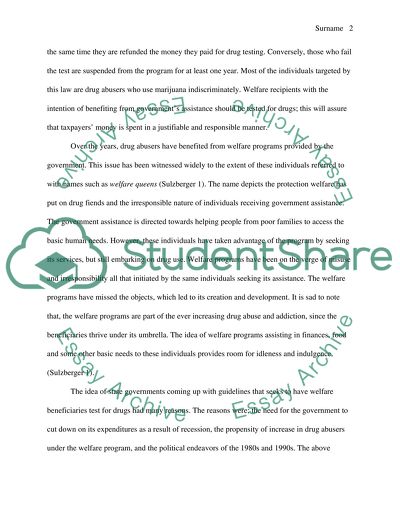Cite this document
(“Public Policy Issue: Drug Testing Welfare Recipients Essay”, n.d.)
Public Policy Issue: Drug Testing Welfare Recipients Essay. Retrieved from https://studentshare.org/social-science/1586933-pulic-policy-issue-drug-testing-welfare-recipients
Public Policy Issue: Drug Testing Welfare Recipients Essay. Retrieved from https://studentshare.org/social-science/1586933-pulic-policy-issue-drug-testing-welfare-recipients
(Public Policy Issue: Drug Testing Welfare Recipients Essay)
Public Policy Issue: Drug Testing Welfare Recipients Essay. https://studentshare.org/social-science/1586933-pulic-policy-issue-drug-testing-welfare-recipients.
Public Policy Issue: Drug Testing Welfare Recipients Essay. https://studentshare.org/social-science/1586933-pulic-policy-issue-drug-testing-welfare-recipients.
“Public Policy Issue: Drug Testing Welfare Recipients Essay”, n.d. https://studentshare.org/social-science/1586933-pulic-policy-issue-drug-testing-welfare-recipients.


